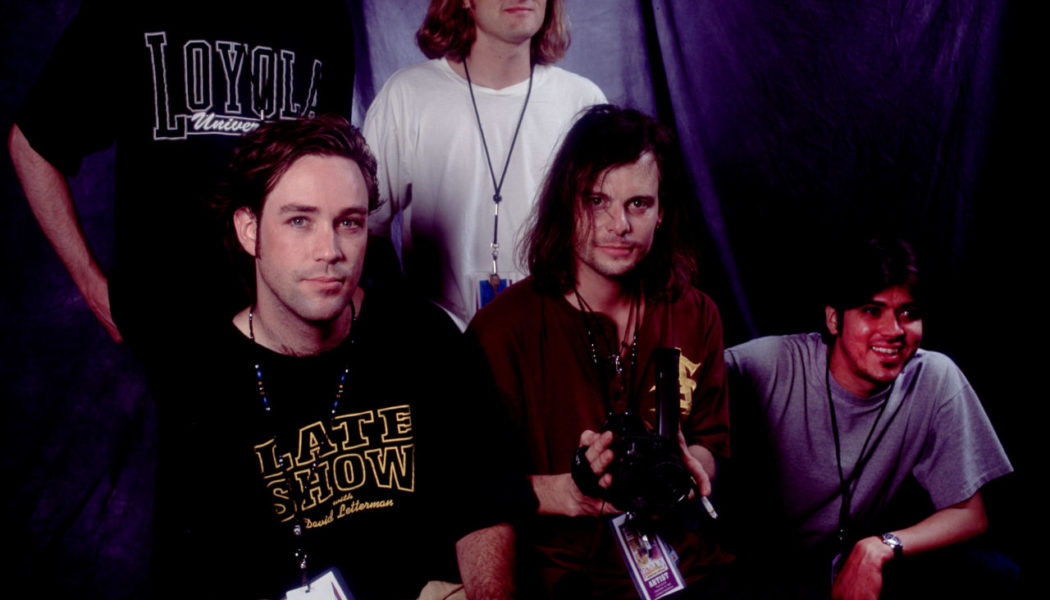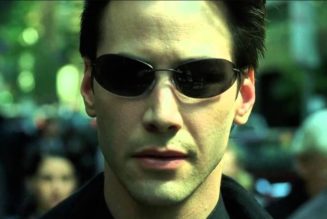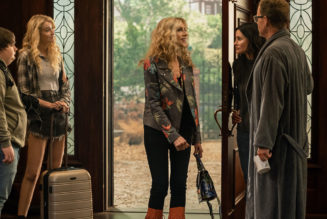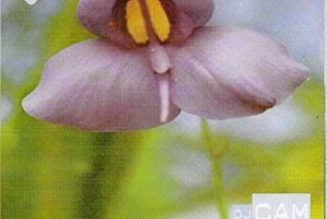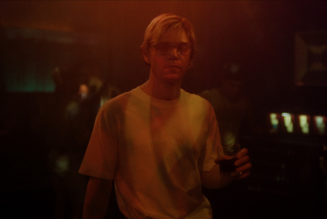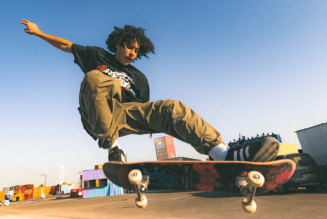I was 13 going on 14 when I started working at a family-run supermarket in Whitehorse, Yukon called Food Fair. It was the summer of 1995; Toy Story was a new movie that challenged our expectations of animation and Randy Newman; we were beginning to grapple with the reality of the Frappuccino; and we flirted with Pogs as the next Marbles. But I remember Gin Blossoms the most.
Yes, the “Hey Jealousy” band. But to me, they were so much more.
At a time in my life when the grocery store’s overhead PA system was my lifeline, Gin Blossoms were my alt-rock radio saviors — raining down hard truths about lust masquerading as love as I sat on a milk crate, turning cans so all the labels faced the same direction, always English side out. (There was a secret war being waged on the French-speaking population of our town, and we fought on the front lines, making it confusing for francophones to find Del Monte brand whole-kernel corn.)
I was a baby in endless ways, the world a secret to me still. I didn’t know much of anything outside of my immediate family. At school, I was still the kid who cried during eighth grade math, far past the age when that was socially acceptable. I was awkward, insular. Working in a grocery pushed me out of my shell and into a world where I was forced to interact daily with members of the public. And it was an opportunity to listen to the radio. You could choose to sit idly with your thoughts in the moments you had to yourself, or you could lose yourself to the rhythm of radio-friendly ‘90s alt-rock.
Gin Blossoms were the darlings of 9-to-5 radio stations that bragged about never playing the same song twice. A group of guys from Tempe, Arizona, they were one of a few bands we’d label “jangle-pop” (a term that loosely translates to “all treble”). I didn’t know where they were from, and it didn’t really matter. I lived in the Yukon. Every band in existence was from somewhere that felt untouchable. They were the soundtrack to formative moments spent in daytime customer service locations with access to a radio station, waiting in line at the bank, getting your tires changed. Facing cans in aisle 6. Gin Blossoms were there for me every step of the way.
It’s easy to bury a band like Gin Blossoms in the sands of nostalgia, but what we’re really burying are the memories of our lives when they were free to be chaotic. Hits like “Follow You Down” and “‘Til I Hear It From You” were less traditional love songs than explorations of love as a concept we still had time to ruin for ourselves.
Lots of songs were about love on the radio: It was an endless well of clichéd inspiration. But Gin Blossoms felt different to me. Their lyrics weren’t about love everlasting, the thing you grasp on to so tightly you’re worried you might crush it. Where Hootie and the Blowfish sang that they only wanted to be with you, Gin Blossoms held fewer pretenses about the durability of love. Their music provided a glimpse into a world where things needn’t be that precious. It’s easy now to forget when I was so young, “Follow You Down” takes me back to feeling the possibility of having enough time to make a mess of my life while still holding plenty of time to fix it. For a certain generation, spinning their greatest hits drags you back to your youth, without the aimless angst and awkwardness of your younger self.
During these endless days idly listening to grocery store radio, I first felt my own agency and place in the world. “Hey Jealousy” offered an opportunity to feel older with the understanding that being an adult wasn’t so neat and tidy. I heard a narrator plead for a lost love to allow him back into her life, and I pondered the sting of making mistakes you can’t undo. Those eternal errors that you would make a deal with the devil to fix, the grievous mistakes that years later are long and distant memories.
The songs even sound like nostalgia.
“Hey Jealousy” is a song best heard over a tinny in-store PA, where you can only grasp the high-end of the guitar and the vocals. Many, many years later while test-driving a 2009 Toyota Tacoma, the salesman suggested I turn on the radio to get a feel for the overpriced stereo he was trying to upsell me. “Hey Jealousy” came on immediately, and it felt different with the full range of woofers and tweeters — dulled, despite the broader dynamics, like eating your mom’s homemade pasta in your youth and then years later going to the Olive Garden. Something was lost in the translation.
Hearing “Follow You Down” now draws back the invulnerability of youth. I didn’t feel the dread and compounding worry of the world in my early teens, but rather the promise of the future laid out ahead of me. “Follow You Down” reminds me of sitting in the backroom of the store, the air smelling like damp cardboard and old cabbage, dreaming of what life would be like when we got out of this place. The thrill of an unknown future and the possibility of bumps in the road that would be stories to tell, leaving prideful scars on the heart.
When I first put my work uniform on, I was a baby giraffe, awkward and gangly and looking for support wherever I could find it. I was made sturdy in the embrace of my environment, forced so far out of my comfort zone that my awkward sense of self bent to breaking. I had barely spoken to anyone my entire life, and now I was forced to talk to everyone, to find connections and make more of my life than what I had when I walked in the door. Even if what I made might become a disaster, at least I was out in the world, testing my limbs and bravado as I found myself becoming emboldened by the spirit of a world I hadn’t yet imagined for myself.
Released around this time was Empire Records, a movie about a day in the life of different flavours of ‘90s stereotypes working in a record shop, starring Liv Tyler, Renée Zellweger, Anthony LaPaglia and a bunch of actors I have never seen again. The climax of the whole ordeal is the moment Tyler and generic handsome grunge guy kiss behind the record store sign, as “Til I Hear It From You” plays softly in the background.
It’s a bold move setting your big romantic moment to a song about love you can’t trust and a lover that’s holding secrets, but it also highlights the kind of love that bands like Gin Blossoms sell in the romcom marketplace. The love isn’t everlasting and permanent in these stories — it’s immediate and urgent and more focused on the immediacy of fleeting love. There’s a reason these movies never show us the future of our protagonists; for all we know their future is uncertain, doomed even.
In Gin Blossoms’ world, it’s not about the future — less about the potential doom on the horizon than the freedom of the present: those first moments when you’re free and open in the weightlessness of youth. Like so many bands that played on that radio, between local ad sales and requests for someone to please come help bag groceries, Gin Blossoms’ songs were the tools shaping me from a block of clay, cutting grooves into the mud and revealing my form as I rode shopping carts down the aisles and hallways, unafraid of the eventual crash.
